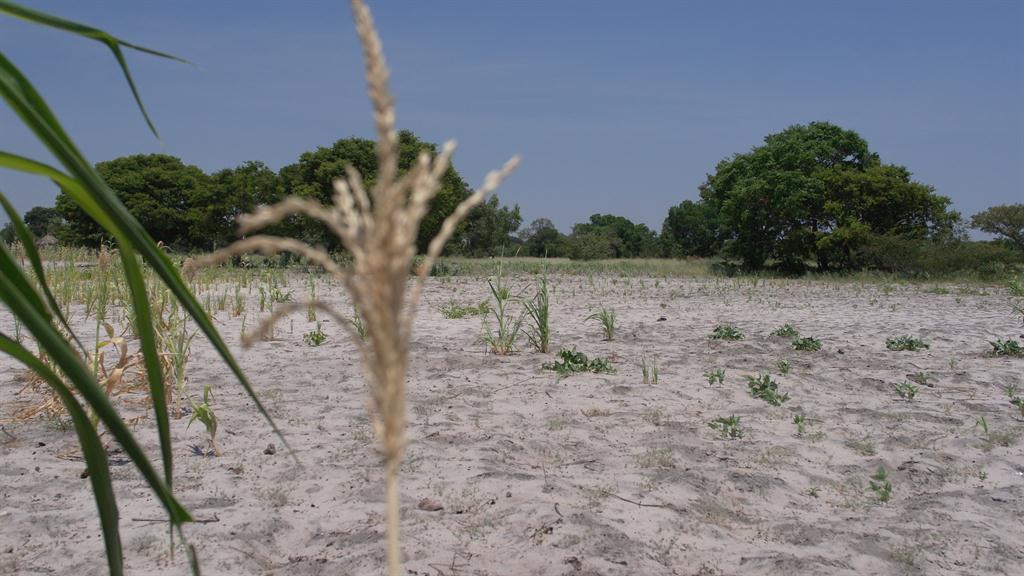Coronavirus worsening hunger
With 400 000 Namibians severely food insecure, the coronavirus pandemic and its impacts are expected to place the most vulnerable under even more strain.
ELLANIE SMIT
WINDHOEK
Before the coronavirus pandemic, 135 million people worldwide were coping with acute hunger caused by conflict, climate shocks and economic downturns, while another 183 million were at risk of being pushed into extreme hunger if faced with an additional stressor.
In Namibia, 400 000 people are severely food insecure, while 800 000 are in a stressed food situation.
Now, the coronavirus pandemic and its impacts are driving hunger even further.
This is according to assessments by the United Nations' Food and Agriculture Organisation (FAO), as well as the 2020 edition of the Global Report on Food Crises, produced by FAO, the European Union and 13 other partners.
Clear and present danger
“The coronavirus pandemic poses a clear and present danger to food security and nutrition, especially to the world's most vulnerable communities,” FAO director-general Qu Dongyu said this week at the opening of a high-level UN event on humanitarian action.
He told the virtual event that while assessments were taking place at country level as ongoing agricultural seasons unfolded, the impact of the coronavirus was already being seen in some of the world's food crisis hotspots.
The latest estimates show that 10.3 million people are now dealing with crisis levels of acute hunger or worse.
“We risk a looming food crisis unless measures are taken fast to protect the most vulnerable, keep the global agricultural supply chains alive, and mitigate the pandemic's impacts across the food system,” Qu said.
Failing food systems
He added that local food availability was already emerging as a critical risk as many farmers had reduced income and resources to invest in the next planting season.
Qu's message came ahead of the release of a new policy brief by UN secretary-general, Antonio Guterres, who warned that food systems are failing the world's most vulnerable and that the coronavirus was making it far worse.
FAO and other UN agencies are concerned that the coronavirus' multiple impacts on economic activity and supply chains are limiting people's ability to access food, increasingly restricting the cash liquidity of farmers and handicapping farmers' ability to produce and market food – which in the long-term could seriously degrade their livelihoods.
As part of the revised United Nations Humanitarian Appeal for the coronavirus, FAO has asked for $350 million to support a range of activities aimed at helping poor farmers continue to operate, safeguard the continuity of food supply chains and markets, and prevent the food sector from being a vector of transmission for the disease.
WINDHOEK
Before the coronavirus pandemic, 135 million people worldwide were coping with acute hunger caused by conflict, climate shocks and economic downturns, while another 183 million were at risk of being pushed into extreme hunger if faced with an additional stressor.
In Namibia, 400 000 people are severely food insecure, while 800 000 are in a stressed food situation.
Now, the coronavirus pandemic and its impacts are driving hunger even further.
This is according to assessments by the United Nations' Food and Agriculture Organisation (FAO), as well as the 2020 edition of the Global Report on Food Crises, produced by FAO, the European Union and 13 other partners.
Clear and present danger
“The coronavirus pandemic poses a clear and present danger to food security and nutrition, especially to the world's most vulnerable communities,” FAO director-general Qu Dongyu said this week at the opening of a high-level UN event on humanitarian action.
He told the virtual event that while assessments were taking place at country level as ongoing agricultural seasons unfolded, the impact of the coronavirus was already being seen in some of the world's food crisis hotspots.
The latest estimates show that 10.3 million people are now dealing with crisis levels of acute hunger or worse.
“We risk a looming food crisis unless measures are taken fast to protect the most vulnerable, keep the global agricultural supply chains alive, and mitigate the pandemic's impacts across the food system,” Qu said.
Failing food systems
He added that local food availability was already emerging as a critical risk as many farmers had reduced income and resources to invest in the next planting season.
Qu's message came ahead of the release of a new policy brief by UN secretary-general, Antonio Guterres, who warned that food systems are failing the world's most vulnerable and that the coronavirus was making it far worse.
FAO and other UN agencies are concerned that the coronavirus' multiple impacts on economic activity and supply chains are limiting people's ability to access food, increasingly restricting the cash liquidity of farmers and handicapping farmers' ability to produce and market food – which in the long-term could seriously degrade their livelihoods.
As part of the revised United Nations Humanitarian Appeal for the coronavirus, FAO has asked for $350 million to support a range of activities aimed at helping poor farmers continue to operate, safeguard the continuity of food supply chains and markets, and prevent the food sector from being a vector of transmission for the disease.




Comments
Namibian Sun
No comments have been left on this article